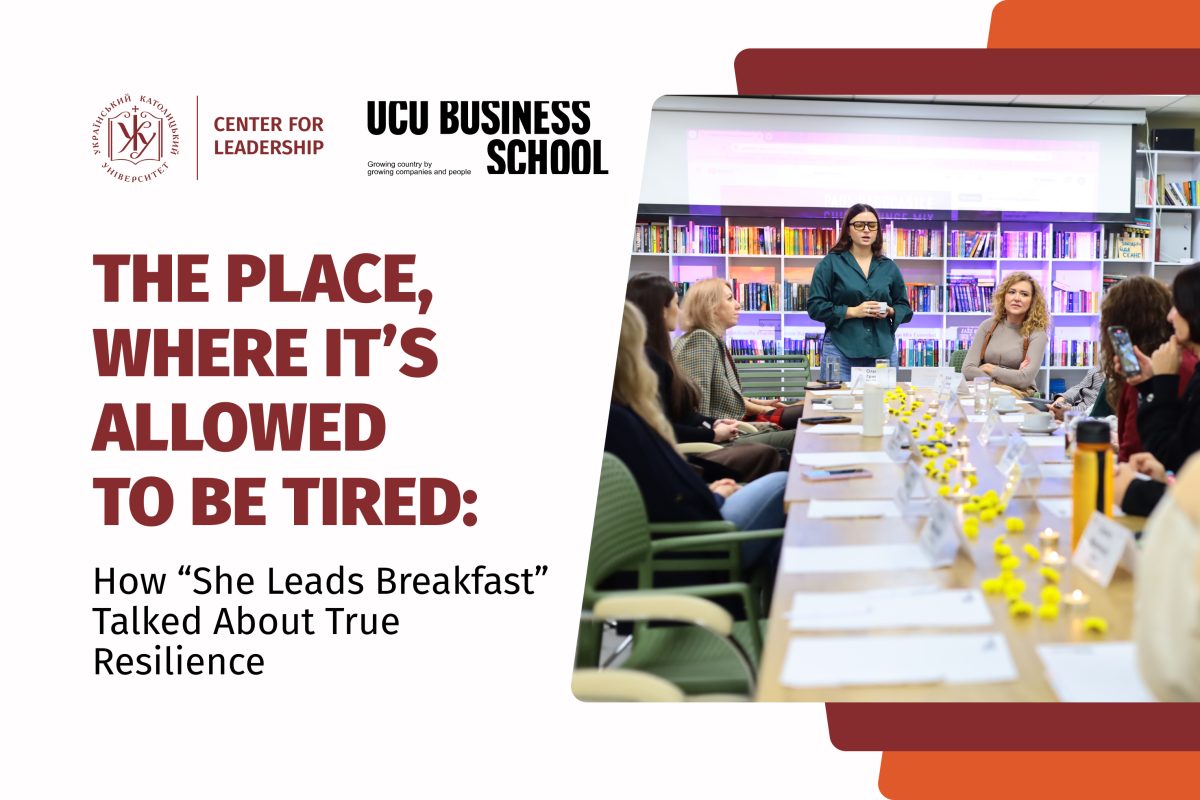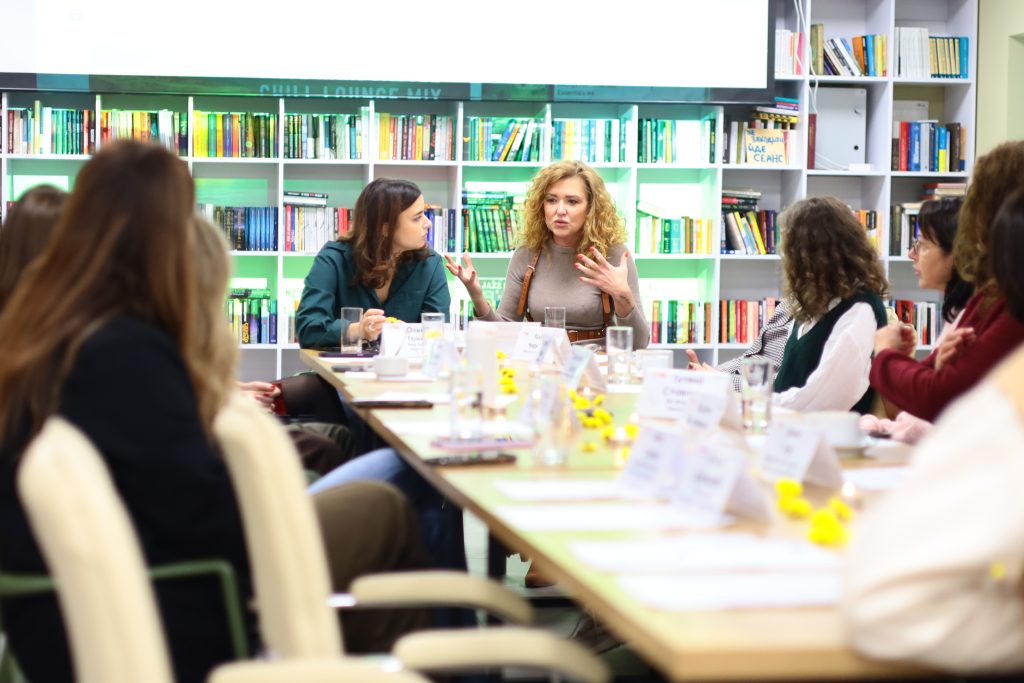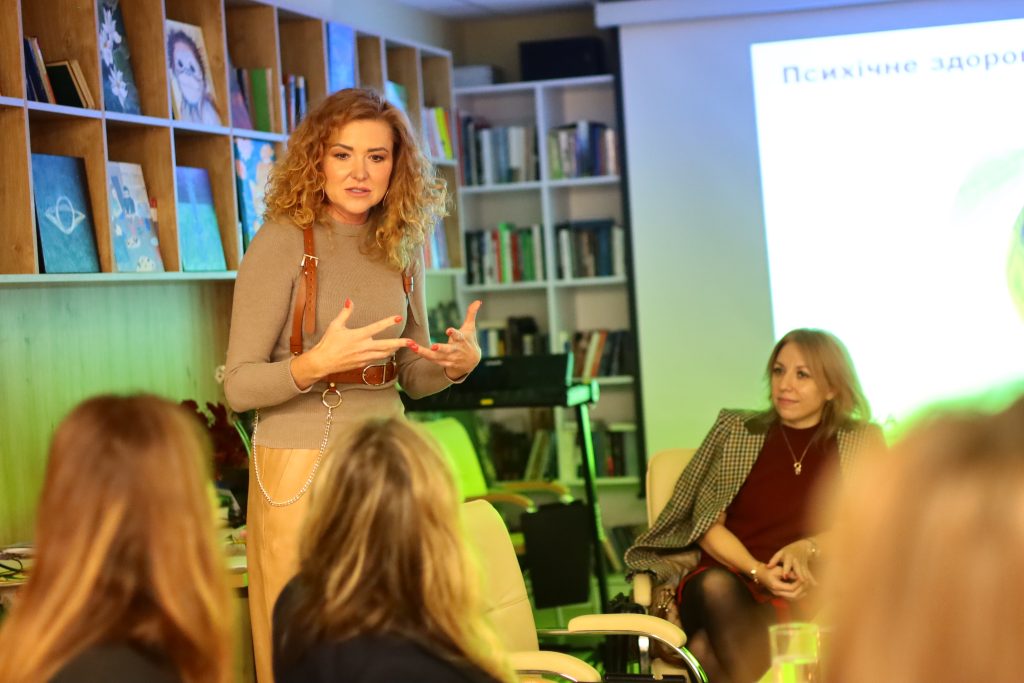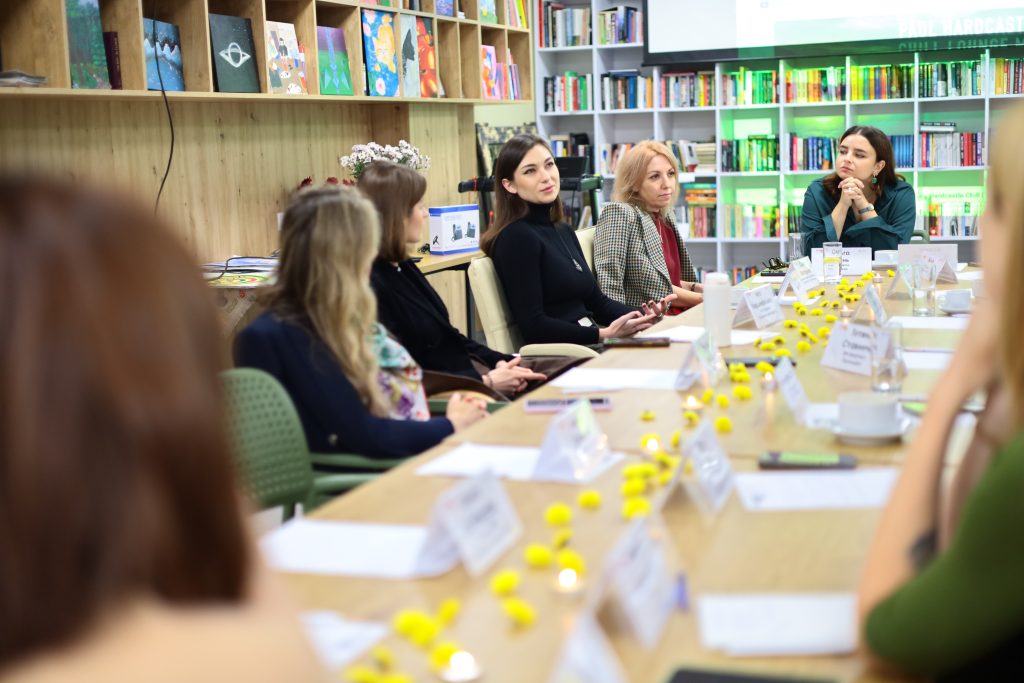
Women’s Breakfast at “Lisova Polyana”: On Resilience That Begins with Honesty
On October 18 in Kyiv, the “She Leads Breakfast” took place – an event organized this time by the Center for Leadership of UCU and the UCU Business School, in partnership with the Center for Mental Health and Rehabilitation of Veterans “Lisova Polyana”.
This was the third meeting in the series of Breakfasts for women leaders, bringing together representatives from education, public administration, business, the civic sector, and the Defense Forces. What united them was a shared aspiration – to remain leaders even in times of challenges and crises.
The Breakfast took the form of an open conversation, the highlights of which we share below.
“We know how to act. But do we know how to recover?”
The venue – the “Lisova Polyana” Center, led by Kseniia Voznitsyna, – gave the meeting a special meaning. Among the participants were managers, educators, psychologists, journalists, entrepreneurs, and servicewomen – all those who dared to speak openly about the challenges they face:
- How can one stay effective when exhaustion becomes the background?
- How can one delegate when it feels like everything depends only on you?
- And how can one allow oneself a pause without feeling guilty?
The meeting was moderated by Olha Hryn, UCU Business School alumna and Partner at the marketing agency “New Flame”. It began with introductions and the question: “What is my biggest challenge as a leader today?”

We live in a state of constant mental speed. Sometimes it feels like there’s not enough energy left – neither for yourself nor for your team”,
set the tone for the conversation, said the moderator.
In the participants’ short reflections, one could hear the whole map of leadership experience during wartime. Some spoke about responsibility for their teams, others – about balancing work and family, and some – about the fatigue that cannot be “shown”.
It was a conversation without forced optimism, but full of honesty. The participants talked about boundaries, guilt, invisible fatigue, the difficulty of delegating, and the expectation to “hold on” – even when neither moral nor physical strength remains.
In turn, Kseniia Voznitsyna emphasized that the ability to recognize and voice one’s own state in a safe space is, in fact, a sign of Leadership – not its denial.
“Self-care is not something you do after work. It’s part of a leader’s responsibility. Because when we’re exhausted, the quality of our decisions declines”,
she added.
Recovery as Part of Our Resilience
The central theme of the meeting was the experience and insights shared by Kseniia Voznitsyna. Over the years of working at “Lisova Polyana”, she has witnessed hundreds of stories – of soldiers returning from the front lines, and of teams learning to work alongside them.
“Everyone cries here: men, officers, doctors. Because it’s not about being emotional – it’s a physiological way for the nervous system to release tension. Crying is normal. It’s a signal that the system is functioning”,
explained the head of the Center.
Kseniia noted that more and more people understand the importance of supporting mental health – and this is a positive trend, since recovery is part of our Resilience.
“We often equate Leadership with self-control. But a leader who doesn’t allow themselves emotions cannot truly be present with their team in its vulnerability. And today, that’s one of the key competencies”,
she emphasized.
She also added that chronic stress and tension change the structure of the brain – which makes it crucial to develop neuroplasticity.
“The brain can be taught to live differently. But this requires consistency: sleep, movement, communication, meaning, and a sense of safety. These are not “weekend tips”, but biological needs of the nervous system”,
the expert stressed.
Five Basic Practices for Mental Health
The “Lisova Polyana” team applies an approach developed by the World Health Organization, which identifies five key elements of mental well-being:
1. Sleep. Quality and regular sleep is the brain’s natural recovery mechanism. During sleep, the brain’s “lymphatic system” activates, cleansing it of toxic stress byproducts.
2. Nutrition. Stability and regularity in eating habits are the foundation of energy balance. Fluctuations in sugar or caffeine levels can sharply increase anxiety and irritability.
3. Physical activity. Movement stimulates the production of dopamine, serotonin, and endorphins – neurotransmitters that regulate mood and support cognitive functions.
4. Social connections. A person cannot recover in isolation.
“The best prevention of burnout is not a vacation, but connection with people who understand you”,
noted Kseniia Voznitsyna.
5. Meaningful activity. When everyday work has meaning, it sustains internal motivation and creates a sense of control.
“In our culture, the ability to “hold on” is highly valued. But a leader who consistently ignores their own needs will eventually lose the ability to support others”,
she reminded the participants.

Generational Trauma and New Ways of Responding
The participants reflected on the topic of generational trauma – experiences transmitted not only through stories, but also through bodily reactions and behavioral patterns.
“We often carry not only our own stress but also the experiences of our parents and grandmothers – generations who survived wars, deportations, and repressions. Their coping strategies – avoidance, silence, control – have been built into our own ways of acting”,
said the director of “Lisova Polyana”.
In turn, guests at the Breakfast admitted that many of their leadership decisions are attempts to overcome this inherited tension – the desire to be “unbreakable”, to never ask for help, to never show weakness.

“I think we all learned to survive through productivity. But survival is not the same as living”,
admitted one of the participants.
This topic sparked a long discussion about how a new generation of women leaders is emerging – those moving from doing everything alone to learning how to ask for help and receive support.
“Breaking generational patterns is also Leadership. We’re learning to be not only useful, but alive”,
summed up Kseniia Voznitsyna.
Instead of an Epilogue: On Leadership as the Ability to Be Present
At the end of the meeting, participants shared their own practices of self-support. Some mentioned morning runs, others – short conversations with their teams, and some – the tradition of dedicating a day to themselves, away from the usual pace of life.
Each story sounded like an answer to a shared question: “What helps me stay myself when the world doesn’t allow for rest?”
We are used to speaking about Leadership as action. Yet today, in new circumstances, it is more about presence – the ability to be alongside: with oneself, with one’s team, and with a world that keeps changing.We sincerely thank everyone who made this meeting possible – and, most importantly, those who have turned “She Leads Breakfast” into a tradition one wants to return to. It is spaces like these that nurture and inspire women who, every day, are transforming themselves, their teams, and their country.